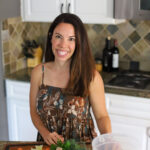Outlive by is a meaty, research-heavy book dotted with personal anecdotes to help bring home the points that Peter Attia believes are crucial to consider in our approach to extending lifespan while also improving our physical, cognitive, and emotional health.
From Amazon: For all its successes, mainstream medicine has failed to make much progress against the diseases of aging that kill most people: heart disease, cancer, Alzheimer’s disease, and type 2 diabetes. Too often, it intervenes with treatments too late to help, prolonging lifespan at the expense of healthspan, or quality of life. Dr. Attia believes we must replace this outdated framework with a personalized, proactive strategy for longevity, one where we take action now, rather than waiting.

Outlive by Peter Attia Book Review
As a non-fiction, health-focused book junkie, I was really excited to read this book. I actually chose to listen to it (narrated by Peter Attia) so I could listen to it on walks. It took me roughly four months to complete it because I preferred to listen to it in short, 15-30 minute chunks. This way I could better absorb the information. While I scribbled down little takeaways on the notes section of my phone, I was also thrilled when my mom gifted me the physical version. It is so information-heavy in parts that it will be nice to have a physical copy to refer back to.
Outlive: The Science & Art of Longevity by Peter Attia, MD
Overall, I loved this book. It is packed-full of research and I often found myself jotting down minute details like ApoB 20-30mg/dc. Do I remember what that was for by the time I got to the end of the book? Not a bit, but I knew it was something that I wanted to look more into. Because of this, I’m happy to have both the audio and physical copies!
While parts of it read like a textbook, overall I would not describe it as dry, especially if you’re someone interested in how to better your health. Peter Attia shares a lot of stories from his own life journey, some incredibly vulnerable and humbling, to help illustrate points between sharing research results and client case studies. I also like that the ending chapters are dedicated to mental health because, as he puts it, longevity is meaningless if you’re miserable.
I’ve heard some people criticize the book for its length and depth, instead wanting a more succinct breakdown of what to do and not do. The author is very upfront I felt, though, about saying this isn’t going to be an “eat this not that” or “do steps 1-5” kind of book. It’s more nuanced so the reader can create their own plan of attack. Medicine 3.0 (as he describes this new, more personal take on health) is individualized and begins years before symptoms show up. This book helps us navigate those waters.
Outlive Takeaways (AKA: What I Jotted Down)
- Begin at 2 hours a week and then aim for 3-4 hours a week of zone two exercise to get the benefit of non-insulin supported glucose clean-up, and Alzheimer prevention.
- The measure of humility is if you can know and tell the truth about yourself.
- Exercise is incredibly important. Strength and cardio certainly, but also flexibility and stability.
- A bad diet hurts us more than a good diet helps us. Food is important but not the end all be all that some people make it out to be.
- Protein needs to be a priority; roughly 1g/lb of body weight if you’re looking to increase lean muscle mass. Intake needs to be spread throughout the day and of high quality (animal protein).
- Sleep is vital. Sleep tips: nothing that stimulates the brain for 1-2 hours before bed. The room should be cold and very dark. If you can’t sleep, get up and go to another room but only do boring activities, like reading a dull book. Don’t use that time to be productive.
- Get my VO2 max checked once I have the time and mental capacity to focus on health more.
- Many diseases begin decades before symptoms appear. That’s the time we need to intervene and adjust course.
- Sauna for brain health, 4-7 times per week.
- Trauma versus adversity. Childhood should have adversity. A good litmus test to determine whether it’s trauma or adversity- would you want your own child to experience it?
- Nothing for our physical health will be of value if we don’t get our emotional health in check.
- Eulogy virtues versus resume virtues. Which ones do you have?
- Nothing is good nor bad, but thinking makes it so. Listen to how you talk to yourself. Is that the way you’d speak to your best friend?
- We so often wait for our thinking or motivation to come first, when actually we need to begin with the behavior. Who do you want to be? What does that kind of person do? Start doing those things.
- Why do you want to live longer? For what? For whom?
This might be a very random and succinct compilation of takeaways, especially from such a thick book. And I believe when you read it, you will most likely have a very different list. However, I think that’s Peter Attia’s point: learn the information and then apply the areas that are most helpful to your situation.
I asked IG friends what their takeaways were from the book and here are a few responses:
- Love it! I bought a copy to give to my doctor.
- I’m a nurse and this isn’t taught in medicine. It’s awesome to have this to teach patients.
- I liked it! One lasting piece that resonated with me is: are you writing your resume or your eulogy?
- It’s everything my holistic practitioner has been saying for years!
- Great book but a few things were contrary to other longevity experts I respect. Do your own research, too.
- Need a shorter list to prioritize: how to get the biggest bag for the buck with limited time.
- Read it because of your recommendation. It’s meaty but I loved it!
Have you read it? Thoughts? Do you plan to read it? Do you have a book you’d recommend I read if I enjoy this topic of longevity?
See more book reviews here.



Amber says
I shared this on IG as well but I read this book because of your recommendation! I agree with everything you wrote here. I do not think I would have found it as valuable had I not read it slowly (which goes against how I normally read) and stopped to write down notes. There’s too much to make it a fast read! Like you, I read a lot of health-related non-fiction books so while some of the information was repetitive, I did enjoy his perspective on Medicine 1.0 v 2.0 v 3.0 as well as the value of exercise.
Regarding the adversity in children- I would recommend a new book called “The Anxious Generation”. I just finished it and it covers the value of adversity, risk and adventure in the lives of our young kids through teens.
Brittany Dixon says
I’ve seen a lot of people reading that (Anxious Generation) lately- adding it to my list. Thank you! 🙂